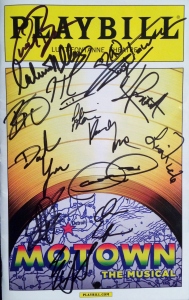 Writers are, in general, playful people. As explained in a study by Dr. Rene Proyer “Playful people are able to reinterpret situations in their lives so that they experience them as entertaining or are able to reduce stress levels.” In my writing, I often rework real life situations with a better (or worse) ending and a more empowered character – a SuperMe – capable of witty remarks and amazing feats of skill, knowledge or cunning. Although it seems hard to find anything entertaining about pain or loss, the expression of an unpleasant experience in a creative way can be cathartic. For an example, recall Life of Pi by Yann Martel; young Pi survives on a boat with what seems to be a tiger, baboon and hyena.
Writers are, in general, playful people. As explained in a study by Dr. Rene Proyer “Playful people are able to reinterpret situations in their lives so that they experience them as entertaining or are able to reduce stress levels.” In my writing, I often rework real life situations with a better (or worse) ending and a more empowered character – a SuperMe – capable of witty remarks and amazing feats of skill, knowledge or cunning. Although it seems hard to find anything entertaining about pain or loss, the expression of an unpleasant experience in a creative way can be cathartic. For an example, recall Life of Pi by Yann Martel; young Pi survives on a boat with what seems to be a tiger, baboon and hyena.
The study categorizes playful people in four ways. I imagine writers can check one or all these categories. I will test each categories with myself and with the four Russian writers on my reading list for the year – Tolstoy, Chekov, Bulgakov and Nabokov.
1) “Other-directed playful” includes socializing with friends and other writers. For me – a member of several writing groups, an “E” for extrovert on Myers-Briggs tests and working in a profession that involves people – this category is a hit. For the Russians writers, socializing with each other is well documented. Tolstoy reportedly took partying (1800’s style) at college to the extreme and never graduated. Lucky for him, it did not deter his writing career and success.
2) The “light-heartedly playful” consider life a game. And in games, it’s how the game is played. During the years I cared for my parents, we continued to play games. I had a performance baseline for each of them and measured each day against the previous. During play, the filters and pretensions dropped. Strategy choices revealed character, health and mental faculty. Humor was also part of the game. Chekhov began his writing career by publishing humorous anecdotes and stories to pay for his medical school studies. After that, his writing took a turn for the dark and serious.
3) The “intellectually playful” like to play with thoughts and ideas. Occasionally, the less tired and more clever me does re-orchestrate events to tell a playful story. I once threw away a microwave because my son said smoke came out of it. When I learned this might not have been true, I wrote a short story, “Trial of the Microwave.” On a more serious topic, Bulgakov wrote a satire about Stalinist Russia, Master and Margarita, which casts a wall-eyed loon and a talking cat as the devil’s attendants. I needed the talking cat in the microwave situation.
4) The “whimsically playful” enjoy “strange and unusual things and are amused by small day-to-day observations.” Details – accents, tone of voice, body language – convey information to the observant. The crystallized conflict photographed above caught my attention the other day. I took several photographs to determine if the ice was melting or the water was freezing. Before I could decide, my fingers numbed, and I almost dropped my phone in the water. Nabokov’s narrator in Lolita can dial up the description to create a complete image and feeling. Read through this jewel by Nabokov. He writes “. . . on the trim turf of the lawn-slope, an old gentleman with a white mustache, well-dressed – double-breasted gray suit, polka dotted bow-tie – lay supine, his long legs together, like a death-size wax figure.”
One last point about playfulness, Dr. Proyer notes that play enhances the ability to solve complex problems. A playful person can shift perspectives. In writer-speak, this shift is changing point of view. A writer imagines the thoughts and motivations of each character and determines the best narrator for a story. Solving (complex) plotting problems may mean jumping into another character’s thoughts and point of view. Or the story might need the intimacy of first person. Sometimes, I get it wrong. I’m quite proficient at switching from third person to first or vice versa. And being playful, I find it fun to edit and try it again in a different way.
